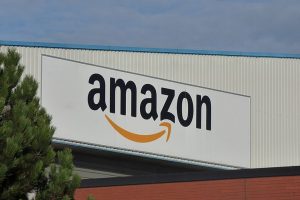Turbulent year for retailers as West Midlands shop closures hit five-year high

High streets across the West Midlands have seen the largest fall in the number of shops for the last five years with a net loss of 188 stores in 2018 as only 287 shops opened, compared to 475 closures.
According to PwC research compiled by the Local Data Company (LDC), the net loss of shops on high streets, retail parks and shopping centres was at the highest for five years at 188, growing from; 153 in 2014, 19 in 2015, 60 in 2016 and 144 in 2017.
Birmingham saw the highest net loss in the region with 23 stores (61 openings and 84 closures), followed by Walsall which saw a net loss of 16 stores (11 openings and 27 closures). Stoke-on-Trent saw a net loss of 12 stores, with eight openings and 20 closures.
Harborne and Evesham were the only areas to see a net growth of one and two stores respectively.
Elsewhere in the region Tamworth saw a net loss of 11 stores (three openings and 14 closures), Rugby had a net loss of nine stores (seven openings and 16 closures), Wolverhampton saw a net loss of eight stores (21 openings and 29 closures), Solihull had a net loss of eight shops (10 openings and 18 closures), and Dudley a net loss of seven shops (three openings and 10 closures).
The West Midlands saw some parts of the high street thriving, with health clubs, pet shops and pet supplies, and Indian takeaways opening a number of new premises across the region.
There was a fall in the number of banks and financial institutions, charity shops and mobile phone shops, reflecting the rising customer demand for online and apps, and in-home leisure.
Andy Lyon, retail and consumer markets leader for PwC in the Midlands, said: “It’s clear that 2018 was a turbulent year for retailers. Coupled with the growth in online and high occupancy costs impacted by business rates, retailers are facing some of the biggest challenges to hit the high street as we see closures hit record levels.
“There is still an important role for the high street to play, as it secures a sustainable future to support online and leisure activity. We are seeing the high street evolve into an experiential destination, be it through leisure experiences, or retailers restructuring their physical space to support online activity by showcasing products, and attracting footfall through parcel collection and returns facilitation. Key to this is to look at not what is failing but what is thriving through consumer demand and how retailers are making smart changes.
“In Birmingham we will see the world’s largest Primark store open this week, which is home to a range of beauty services, as well as food outlets and extensive fashion collections. This is an example on our doorstep of how retailers are diversifying prime retail space into new experiences to attract footfall.
“The West Midlands continues to see significant investment in infrastructure and connectivity with the likes of HS2, Metro extension and the 5G test-bed continuing to put the region at the heart of the UK. Coupled with major events like Coventry City of Culture 2021 and Commonwealth Games 2022 the region is attracting growing visitor numbers, and we hope to see a knock-on effect to the high street.”









